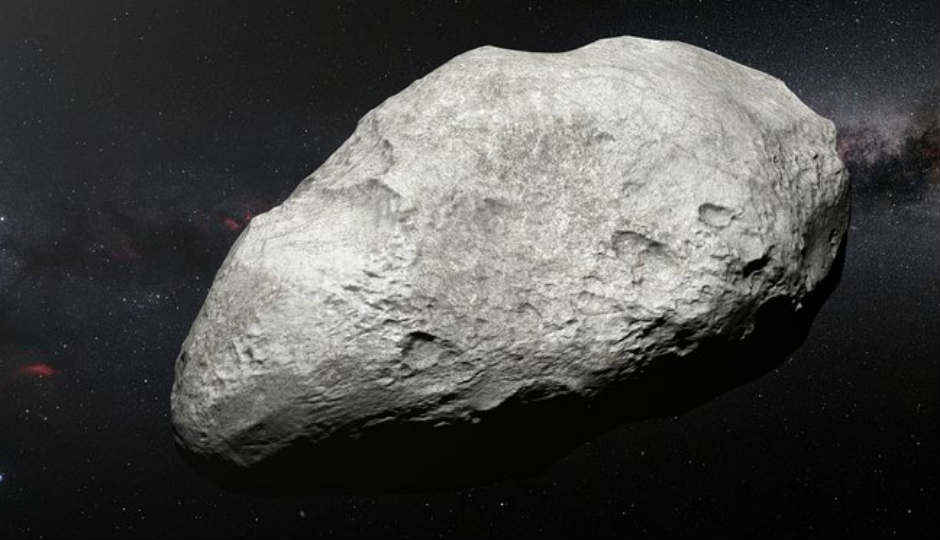 Anyone remember that old Bruce Willis movie called Deep Impact? It's the one where there was an asteroid hurtling towards Earth and the only way to save the planet was to drill into the asteroid and detonate nuclear warheads? The Japan Aerospace Exploration Agency has accomplished something very similar, although the scenario here isn’t a doomsday scenario. The Japanese space agency has managed to land two surface hopping rovers on the surface of asteroid Ryugu. The rovers were launched from the main spacecraft of the Hayabusa2, which lowered itself down to 55 feet from the asteroid surface. The two rovers, Rover 1a and Rover 1b were then deployed and the agency reported success once the rovers had sent back images from the surface of Ryugu, confirming their 100 percent operational status. After the rovers were confirmed operational, the spacecraft lifted itself back up to 20 kilometers from the asteroid surface. The Hayabusa2 is supposed to launch two more rovers on the surface of Ryugu. The rovers will hop around the surface of Ryugu, lasting about 15 minutes and covering perhaps 165 feet (50 m) of horizontal distance apiece, Hayabusa2 team members have said.The larger MASCOT rover will be deployed later in October. Then later in 2019, Hayabusa2 will launch the final rover, a non-explosive impactor towards Ryugu. This rover will create a crater on the surface, at which point, the main spacecraft will descend and collect samples from the freshly created crater, giving us samples from below the surface of an asteroid. These samples will then return to earth in a special return capsule, touching down sometime in 2020 if all goes according to plan. Asteroids are considered to be remnants of a very early part of the universe’s chaotic state and their study could reveal a lot about the formation of the universe, the galaxy and even other celestial objects. Landing rovers on an asteroid’s surface is tricky given their erratic rotation and revolution. The Hayabusa2 mission was launched in December of 2014 and arrived at Ryugu in June 2017. The mission supposedly cost $150 million.
Anyone remember that old Bruce Willis movie called Deep Impact? It's the one where there was an asteroid hurtling towards Earth and the only way to save the planet was to drill into the asteroid and detonate nuclear warheads? The Japan Aerospace Exploration Agency has accomplished something very similar, although the scenario here isn’t a doomsday scenario. The Japanese space agency has managed to land two surface hopping rovers on the surface of asteroid Ryugu. The rovers were launched from the main spacecraft of the Hayabusa2, which lowered itself down to 55 feet from the asteroid surface. The two rovers, Rover 1a and Rover 1b were then deployed and the agency reported success once the rovers had sent back images from the surface of Ryugu, confirming their 100 percent operational status. After the rovers were confirmed operational, the spacecraft lifted itself back up to 20 kilometers from the asteroid surface. The Hayabusa2 is supposed to launch two more rovers on the surface of Ryugu. The rovers will hop around the surface of Ryugu, lasting about 15 minutes and covering perhaps 165 feet (50 m) of horizontal distance apiece, Hayabusa2 team members have said.The larger MASCOT rover will be deployed later in October. Then later in 2019, Hayabusa2 will launch the final rover, a non-explosive impactor towards Ryugu. This rover will create a crater on the surface, at which point, the main spacecraft will descend and collect samples from the freshly created crater, giving us samples from below the surface of an asteroid. These samples will then return to earth in a special return capsule, touching down sometime in 2020 if all goes according to plan. Asteroids are considered to be remnants of a very early part of the universe’s chaotic state and their study could reveal a lot about the formation of the universe, the galaxy and even other celestial objects. Landing rovers on an asteroid’s surface is tricky given their erratic rotation and revolution. The Hayabusa2 mission was launched in December of 2014 and arrived at Ryugu in June 2017. The mission supposedly cost $150 million. from Latest Technology News https://ift.tt/2O42KNU









